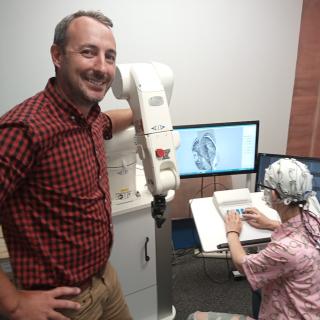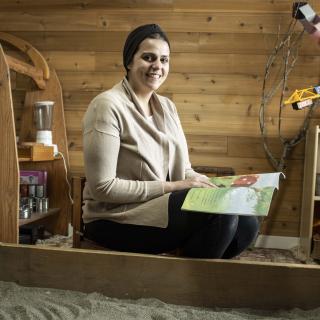VIU partners with Belize to strengthen technical and vocational education programs aimed at building capacity and resilience in the face of climate change.
NANAIMO, BC: Vancouver Island University (VIU) is helping Belizean institutions develop programs that teach students how to adapt to environmental threats such as climate change, and create new programs in forestry.
VIU, in collaboration with Parkland College in Saskatchewan and the Fisheries and Marine Institute (MI) of Memorial University of Newfoundland, will be working over the next three and a half years with three post-secondary institutions in Belize to create tailor-made programs in agro-forestry, fisheries and related preparatory programs to assist student entry to higher levels of education.
VIU is leading an $825,000 Institutional Partnership under the Skills to Access the Green Economy (SAGE) program, implemented by Colleges and Institutes Canada (funded by Global Affairs Canada) to assist the University of Belize (UB) and the Institute of Technical Vocational Education and Training (ITVET) at Stann Creek and Toledo to deliver skills training programs that meet economic and environmental needs in the region.
In recent years, VIU has been involved in a variety of international cooperation projects aimed at helping partner countries build skilled workforces, including in Trinidad and Tobago, Ukraine, Tanzania, Kenya and Belize.
“VIU and the University of Belize first partnered in 1999 to deliver a major fisheries project,” says Darrell Harvey, VIU’s coordinator of International Projects and Internationalization. “The relationship has broadened to include intercultural learning experiences, student exchange opportunities and capacity building projects.”
The partnership with educational institutions in the Caribbean Community (CARICOM), an organization of 15 Caribbean nations, focuses on growing the green economy, which is necessary for economic growth and adapting to changing environmental conditions such as climate change.
According to Colleges and Institutes Canada, the Caribbean islands are among the most vulnerable areas in the world to climate change, which puts their economy, environment and population at risk. The SAGE program will help Belize, Dominica, Grenada, Guyana, Jamaica and St. Lucia become more resilient by supporting training for students in areas of water and coastal management, eco-tourism, agriculture and construction.
“Through a needs assessment process the CARICOM educational institutes determined the programs they wish to develop,” explains Harvey. “VIU put together a strong partnership team to work with our Belizean colleagues and we were selected to participate in the SAGE program.”
Next steps include getting the partners together to determine the scope of essential and foundational skills training will be required, as well as supporting the institutions in their capacity building initiatives, including student services, supporting access for persons with disabilities and Indigenous Peoples, and to help students at the technical and vocational education training level ladder into the university.
Andres Enrich, Co-Chair of VIU’s Department of Forestry, says there are huge learning opportunities not only for faculty and staff involved in this partnership, but for our students as well.
“It helps them get a global perspective on the forest sector and program areas in which they work,” says Enrich. “For example, this will help us learn about and understand what forestry and agro-forestry looks like in Central America and we can bring that knowledge back to our programs for our students.”
“VIU, MI and Parkland are committed to ensuring our Belizean partners are well-supported to meet their unique objectives,” says Harvey. “With our combined subject matter expertise in the fields of forestry, agriculture, fisheries and related preparatory programs and student services, we are looking forward to deepening our partnerships in Belize and supporting the global growth of the green economy.”
-30-
MEDIA CONTACT:
Annette Lucas, Communications Officer, Vancouver Island University
O: 250.741.2020 | C: 250.618.7296 | E: Communications@viu.ca





